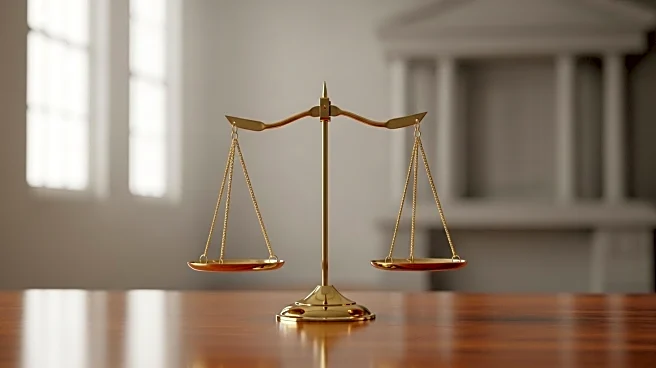What's Happening?
A federal grand jury in Washington, D.C., has declined to indict Nathalie Rose Jones, an Indiana woman accused of threatening President Donald Trump. Jones was arrested on August 16 for allegedly making threats on social media and during an interview with Secret Service agents. Her attorney, Mary Manning Petras, stated that the grand jury found the evidence presented by Justice Department prosecutors to be weak. This decision is part of a series of refusals by grand juries in cases prosecuted by U.S. Attorney Jeanine Pirro's office following President Trump's directive to increase federal patrols in the capital.
Why It's Important?
The grand jury's refusal to indict Jones highlights potential resistance to President Trump's law enforcement policies in Washington, D.C. This decision may reflect broader public sentiment against federal intervention in local matters, raising questions about the balance of power between federal and local authorities. The outcome could influence future prosecutorial strategies and impact public policy discussions regarding federal law enforcement's role in local jurisdictions.
What's Next?
The Justice Department may consider re-presenting the case to another grand jury, although the current evidence has been deemed insufficient. This decision could prompt further examination of the federal crackdown ordered by President Trump, with implications for future law enforcement strategies in Washington, D.C. Political leaders and civil rights organizations may respond to this development, potentially affecting ongoing debates about federal jurisdiction and local autonomy.










